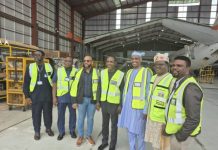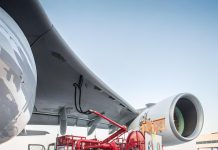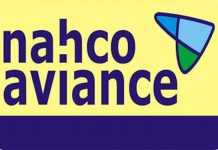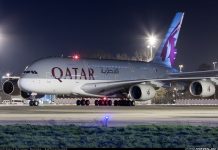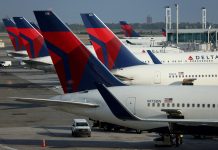Nigeria’s aviation sector is not short on ambition, talent, or passengers, but without smart, sustainable financing, its wings are clipped before take-off. That was the hard truth delivered by financial strategist Mary Olowo-Sokeye at the 29th Annual Conference of the League of Airport and Aviation Correspondents (LAAC), where she issued a rallying cry for a complete overhaul of the sector’s funding models.
Speaking to a packed room of policymakers, airline CEOs, regulators, financiers, and infrastructure experts, Olowo-Sokeye painted a stark picture. Nigeria’s operational success rate sits at just 48%, compared to the global benchmark of 81%. The culprit? Chronic underinvestment, outdated financing strategies, and a reliance on costly, unsustainable funding structures.
“Aviation is the lifeblood of trade and tourism but without financing, it simply cannot fly,” she declared, standing in for Dr. Gabriel Olowo, the veteran industry leader she represents. Drawing from her two decades of financial experience, including at GE Capital’s aviation division, Olowo-Sokeye warned that the nation’s airlines are being pushed to the brink by aging fleets, inadequate maintenance budgets, crumbling infrastructure, and volatile currency and fuel markets.
Her message was not one of despair, but of direction. She laid out a comprehensive roadmap of both traditional and innovative funding options, from equity partnerships and debt instruments to export credit-backed loans and sale-leaseback arrangements, urging operators to embrace new financial structures that can unlock capital, spread risk, and future-proof their operations.
“Nigeria has yet to fully tap the power of export credit-backed financing, and it’s a missed opportunity,” she said, calling for stronger collaboration between government and the private sector to make these channels more accessible.
She also pressed operators to leverage local funding schemes, such as the Central Bank of Nigeria’s N3 billion credit facility, while adopting the financial discipline to weather currency swings and cost surges.
Since 1990, at least 14 Nigerian airlines have folded under the weight of poor financial structuring and safety compromises. “Cost reduction should never compromise safety. Nothing destroys an airline faster than an accident,” she cautioned, echoing the principles found in Dr. Gabriel’s book Cutting Costs Without Cutting Corners.
As discussions at the LAAC conference continued, Olowo-Sokeye’s address landed as both a wake-up call and a blueprint, urging Nigeria’s airlines to rewrite their financial flight plans if they want to keep their skies open, their passengers safe, and their balance sheets in the black.


